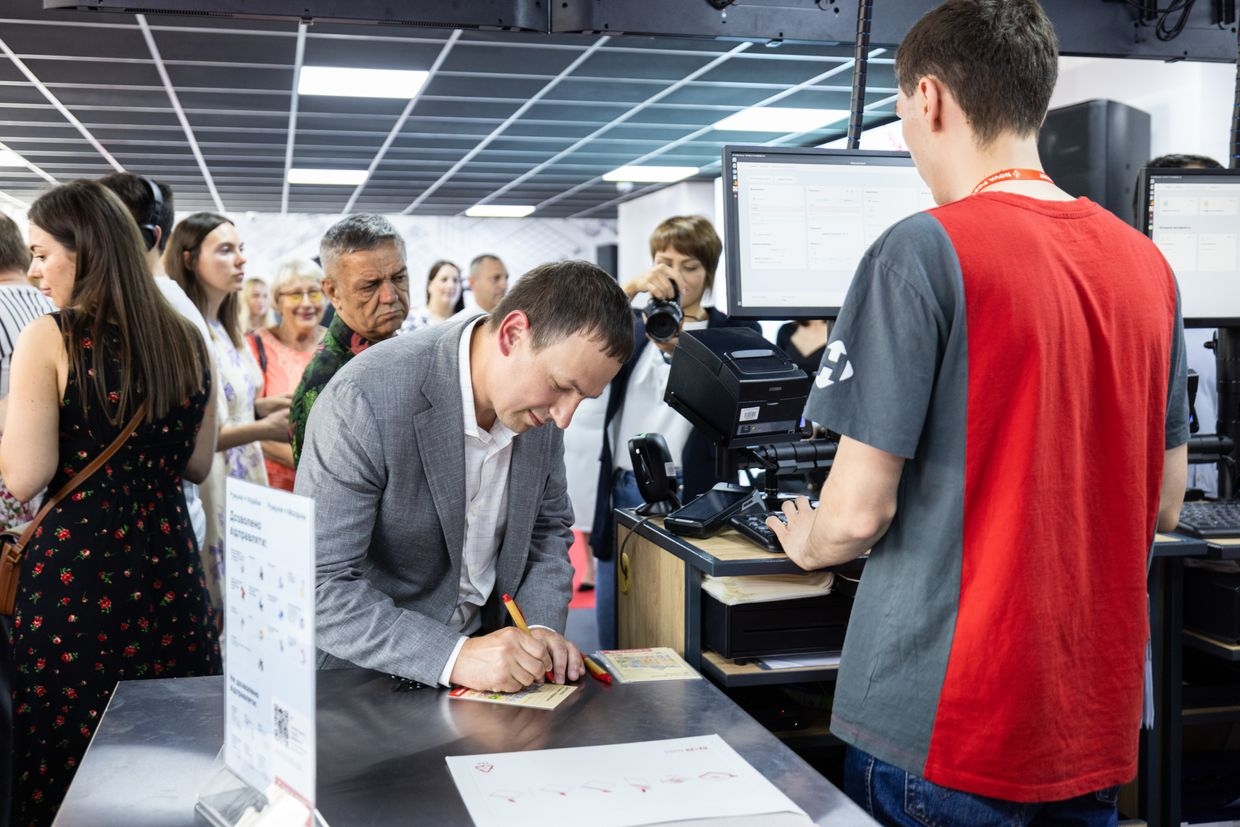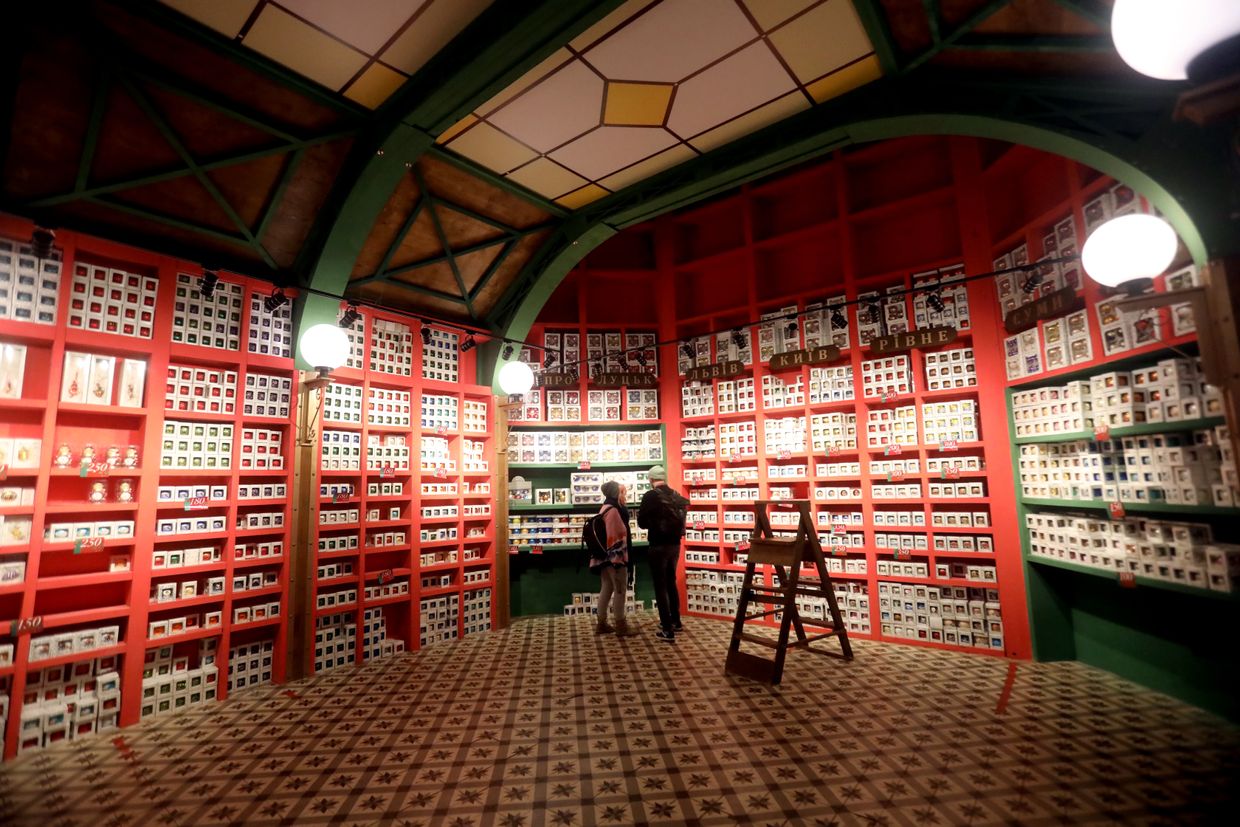Ukraine’s largest parcel delivery service wants to conquer Europe: Interview with Nova Poshta

Nova Poshta, Ukraine’s largest private delivery company and domestic analog to FedEx or DHL — stands head and shoulders above all other private parcel firms in Ukraine.
When Russia’s invasion in 2022 forced millions of Ukrainians to flee to EU countries, the company, now known abroad in English as Nova Post, saw a responsibility to connect them with their homeland, but also an opportunity to expand to new markets.
The first foreign branch opened in Warsaw in October 2022. The latest opened earlier this month in Milan, making Italy the 11th European market for Nova Post.
The company has delivered 1.2 million parcels to and from Ukraine, largely to Poland, Germany, and Czechia. Other markets include Lithuania, Romania, Slovakia, Estonia, Latvia, Hungary, and Moldova. For comparison, in Ukraine, Nova Poshta delivered 366 million parcels in the first 11 months of 2023.
"Ninety percent of our customers (in Europe) are Ukrainians. Our strategy has not changed — we want to be close to Ukrainians both in Ukraine and abroad," Vyacheslav Klymov, the co-owner of Nova Post, told Kyiv Independent in a recent interview.
“We want to become the number one delivery company that connects Ukraine with Europe and the world.”
Nova Post plans to enter 16 more countries in 2024, including France, Spain, the U.K., Ireland, the Netherlands, and Denmark. The plan is to have 200 branches in 30 European countries by 2025.
Opening a European branch costs anywhere between 50,000–100,000 euros unless you’re in Germany, where the cost can run 200,000 euros to cover renovation, property rent, equipment, and other costs.
Nova Post orders the furniture and employee uniforms it needs from Ukrainian suppliers the company has long-standing relationships with.
"We do not purchase fixed assets in Europe and bring everything from Ukraine,” Klymov said. “We want to support our Ukrainian business and give it development opportunities.”
The total budget for all expansion in 2022–2025 is 10 million euros, says Klymov. A lot of that is set aside just to cover losses. Klymov said their main goal is to break even and become self-sufficient as quickly as possible, ideally within one year.
Unsurprisingly, the company has its largest presence in Poland, with 20,000 pick-up points and 37 branches. Germany is next, with 7,700 parcel pick-up points and ten branches. The Czech Republic and Slovakia have 2,700 and 1,500 Nova Post service points, respectively.
New country openings aren’t just dry business affairs. Ukrainians have a special fondness for Nova Poshta, a major fixture of their homeland. In Vilnius, Ukrainian and local guests came out to show support, spontaneously bursting into the Ukrainian folk song "Oi u luzi chervona kalyna" on opening day.
Klymov also remembers the Germany opening, to which Oleksiy Reznikov, Ukraine’s defense minister at the time, sent a model Iris T anti-air missile as a hint for Germany to send Ukraine the real thing, which Berlin eventually began to do.
In Slovakia, people stood outside the new branch before it even opened. In Romania, a line of Ukrainians formed out the door and down the street on the first morning of operation.
‘Wherever we go, we are met with great joy, words of gratitude, and hugs,” Klymov said. “Ambassadors of Ukraine in these countries come to all our openings, which is really nice.”
For many Ukrainians, a Nova Post opening up where they have recently settled is a comfortable way to send parcels home. For others, it’s a sense of community.
"Ukrainians often come to our branches to see each other, communicate, and hear their native language. Therefore, we decided an additional space to allow such meetings would be very appropriate.”
One such concept is being tried out in Budapest. Klymov’s partner, Volodymyr Popereshnyuk, explained the idea in a recent Facebook post. The Nova Post branch there also has a co-working space made with Ukrainians in mind.
But Ukrainians abroad aren’t the only potential customers. As a large, established company with money to invest, Nova Post sees a space for itself as a more general European postal operator.
Building a European network
Nova Post Europe employs a growing roster, now at 500 people, of which 90% are Ukrainians. The team in charge of expanding to new markets has 170 employees. While the EU has different licensing requirements, they aren’t a huge burden.
“The conditions for doing business in Ukraine are more or less the same as in Europe," Klymov said.
Setting up in Europe is also a question of brand recognition. "We are starting from scratch (in these places). Residents did not know anything about our company and service,” Klymov said.
And every country has its nuances. The U.K. doesn’t require a license to deliver parcels, letting Nova Post speed through the bureaucracy there. Italy also impressed Klymov with its well-digitized social services.
Germany turned out a lot more complicated. Getting licenses for parcels and banking and creating a local company took over a month.
Nova Post is both cooperating and competing with local firms. Collaboration has helped the company to experiment with delivery between two European countries.
The company loves its partnerships. In Poland, it has partnered with Inpost, DPD, and GLS. It also works with DPD in Germany, Venipak in Lithuania, Cargus in Romania, and GLS in the Czech Republic.
Thanks to partners, Nova Post has more than 35,000 points for sending and receiving parcels of Nova Post in European countries.
But Klymov says some partners aren’t as speedy as Nova Post is used to. “Therefore, we are firstly focused on building our network… to guarantee fast delivery.”
The company also faces competition from small Ukrainian entrepreneurs who deliver goods cheaply, in vans. But Klymov said Nova Post isn’t interested in competing with them.
“The delivery market is large, and everyone will find a place there,” Klymov said.
















